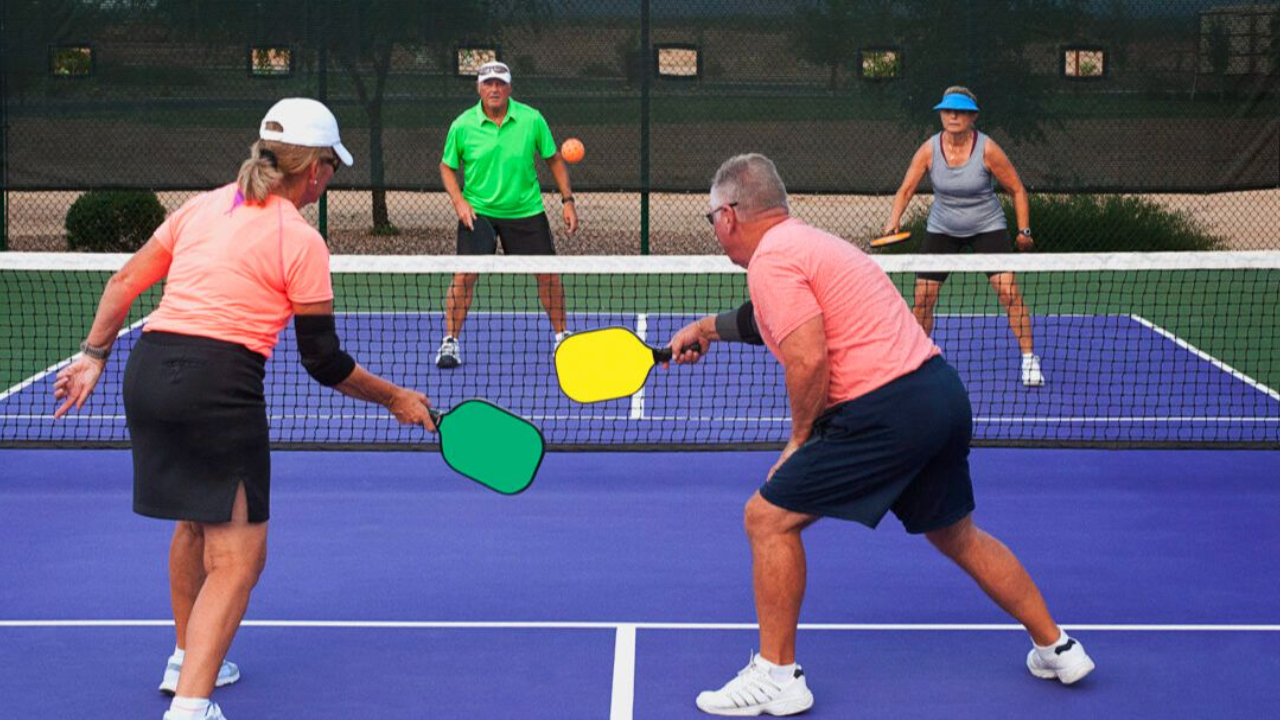
Graying Gracefully – Great Sports for Seniors
Oct 10, 2022By Jennifer Engels, MD
As the years pass, it’s easy to fall into the mindset telling you that sports are only for the young, but nothing could be further from the truth. There are many low impact sports for older adults that have great health benefits, and before exploring some of those, let’s take a few minutes to look at some of the ways you can benefit from maintaining an active lifestyle, no matter your age.
The Benefits of Physical Activity
Muscle Mass and Balance
In our thirties, we begin to lose muscle mass, and as we age the loss of muscle increases the risk of falling and breaking a bone, like a hip. Most falls occur because people have become frail and don’t have enough muscle to support their body. Staying active, on the other hand, helps counteract the effects of aging on your muscles, and having strong muscles makes it easier to support your body, maintain your balance, and avoid painful, and potentially disastrous, falls.
Mental Health
Stated simply, the more you move, the healthier your brain. This reason for this is that movement sends signals to the brain saying it’s time to release the essential hormones and neurotransmitters needed to keep you going. In contrast, staying inactive can lead to imbalances in the brain as the brain sees no reason to continue releasing those valuable chemicals.
Cardiovascular Health
Heart disease is the leading cause of death in the U.S., and regular exercise is one of the best ways to avoid it. Your heart is both an organ and a muscle, and its health is determined by how often you use it. Regular exercise gives your heart the stimulus it needs to remain healthy and strong. It also helps to keep your blood vessels expanding and contracting as they should, while also contributing to your lung health.
Immune System
Regular exercise increases blood flow and puts your immune system on high alert, making it ready to combat the germs you might encounter, while also reducing inflammation and stress that can reduce your immunity to infections.
Joint Health
Keeping your joints moving and exploring your body’s full range of motion through regular exercise, increases your odds of remaining strong and healthy. Just be careful to maintain a healthy balance. Overtraining or using weights that are too heavy can strain your joints and be counterproductive, so be careful.
Also, before embarking on any regular exercise program, be sure to consult with your doctor and get their approval, as well as their advice on things you might want to avoid.
A Few Senior Sports
With those benefits in mind, here are a few suggestions for sports you might want to take up.
Walking
This one is perhaps the easiest of all sports to be engaged in. All you need are some comfortable, loose-fitting clothes and a good pair of walking shoes. A brisk daily outdoor walk of 20-30 minutes can do wonders for your health and help relieve stress as well. Walking is much easier on the joints than running, and it’s great for brain health as well.
A recent study conducted in the UK, the results of which were published in JAMA Neurology, concluded that walking approximately 4,000 steps a day decreases the risk of dementia by 25 percent, while walking the proverbial 10,000 steps daily reduces the risk by 50 percent.
To make your walking a bit more demanding without putting extra strain on your joints, you might consider taking up Nordic walking, a form of walking with ski-like poles that originated in Finland as a way to train skiers during summer months. A decent pair of adjustable poles can be purchased for under $30, and it’s estimated that your energy consumption increases by about 46 percent when engaged in Nordic walking, compared to ordinary walking.
If you want still more, you can strap on some ankle weights to add an extra challenge to your daily outing.
Cycling
Getting on a bike is a great way to get some stimulating cardio work without the strain on joints that comes with running. Just be sure to wear a helmet, and if balance is an issue for you, get a stationary bike for indoor use. Either indoors or out, a brisk 20–30-minute bike ride provides a great workout.
Pool sports
Whether it’s in your backyard pool or a community pool, whether it’s playing water polo or volleyball, engaging in water aerobics, or swimming laps, exercising in the pool is great. It’s a combination of cardio and resistance exercise and for good measure, it’s low impact.
Racket sports
Tennis is the obvious sport in this category, and to reduce strain on your joints you might concentrate on playing doubles. Another option, rapidly growing in popularity, is pickleball, similar to tennis but played on a smaller court with paddles and a plastic ball. There’s also badminton which can be set up and played in your backyard, no special court needed.
Archery
This might seem like an unusual option, but it’s a really good one. For starters, archery gets you off the couch and out into the sunshine and fresh air. It’s also great for your cognitive skills, largely because it requires precise movements and hand-eye coordination.
But with archery, a word to the wise: Be sure to get some instruction and the right equipment, since incorrect movements drawing and releasing the bow can lead to some painful injuries. As long as you ease into the sport, you can reap some great health benefits, and with a little practice you might even want to start entering archery tournaments.
Golf
Versions of this game have been around since the 15th century, and you can burn a lot of calories playing18 holes of golf, or even 9 holes, especially if you ditch the cart and walk the course. If mobility is a problem, most courses have carts to rent. Additionally, golf gives your brain a great workout. Hand-eye coordination and concentration are the keys to hitting the right shot, and your brain does a lot of work as you focus on each hole and work out which club to use with each shot. And all this brain work is great in the battle against dementia.
Walking soccer
Finally, one other option we’ll suggest is this one. Soccer is extremely popular in the DFW area, meaning there are plenty of places to play the game, and this particular version is just like regular soccer, except no running is allowed, only walking. If the referee catches anyone running, the other side gets a free kick. This low-impact version of a sport so many of you love can improve mobility, while lowering the risk of cardiovascular disease and high blood pressure. Plus, as a team sport, it makes for a great social outing.
A final word
As we’ve said, it’s always good to check with your doctor to get their clearance before starting an exercise program. At WeCare Frisco we’re accepting new patients, and I would be glad to help you develop an exercise program best suited to your needs.
At your earliest convenience contact us at WeCare Frisco to schedule an appointment, and know that I look forward to meeting you.



